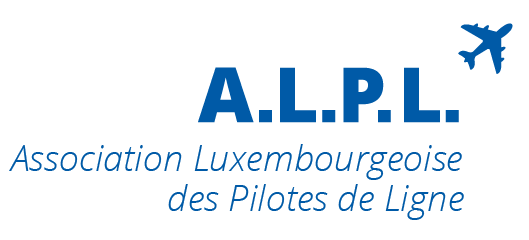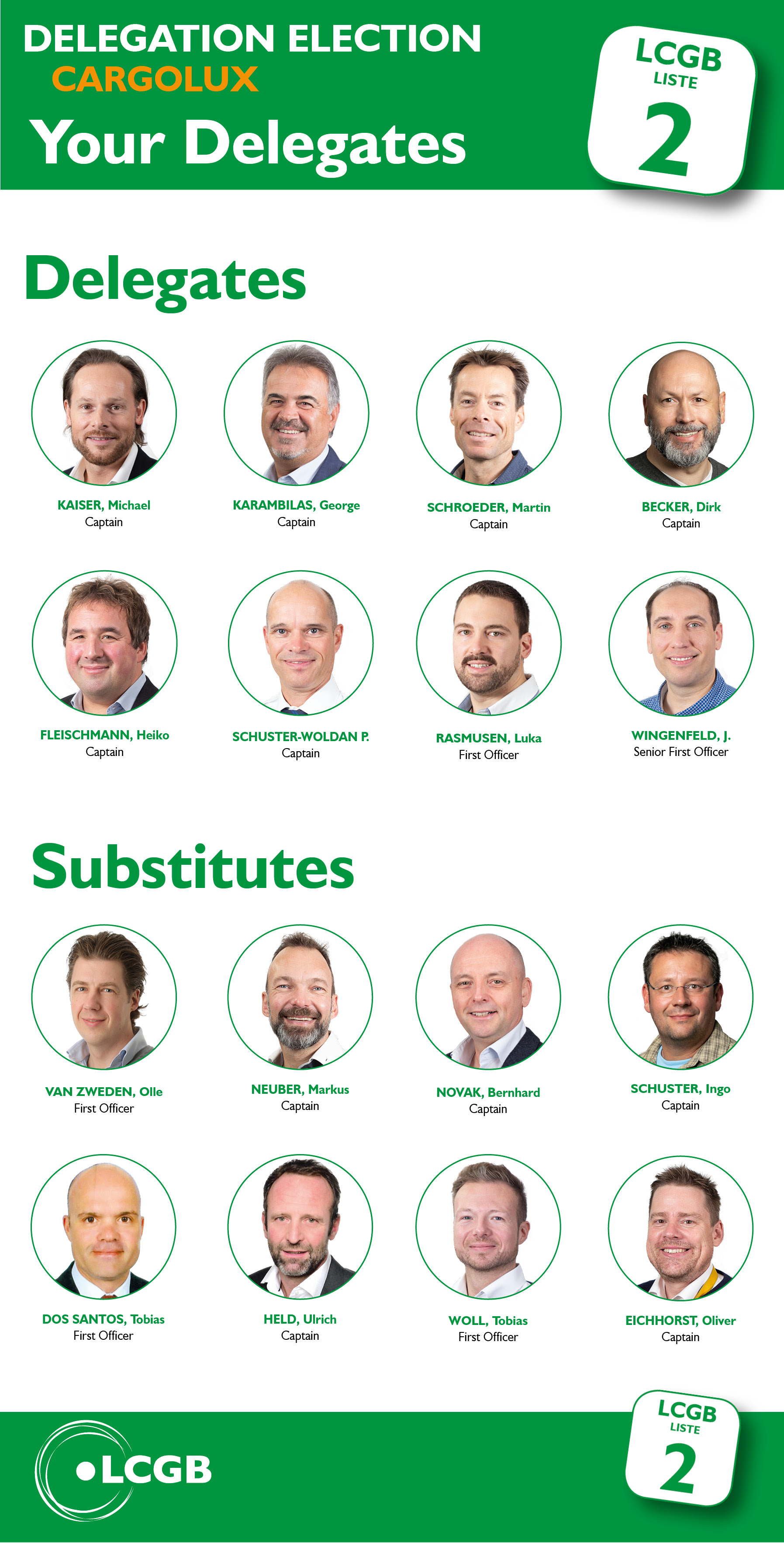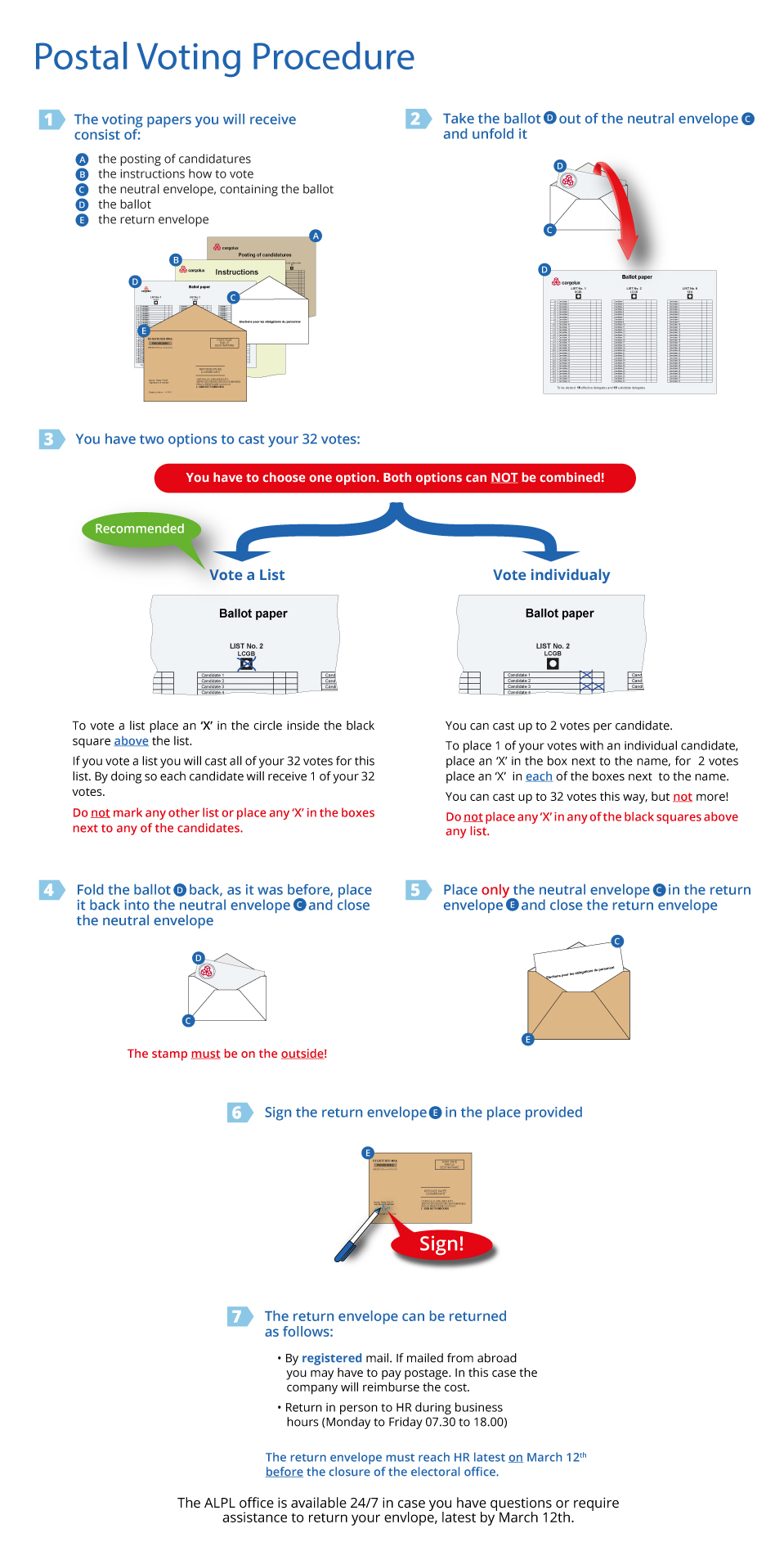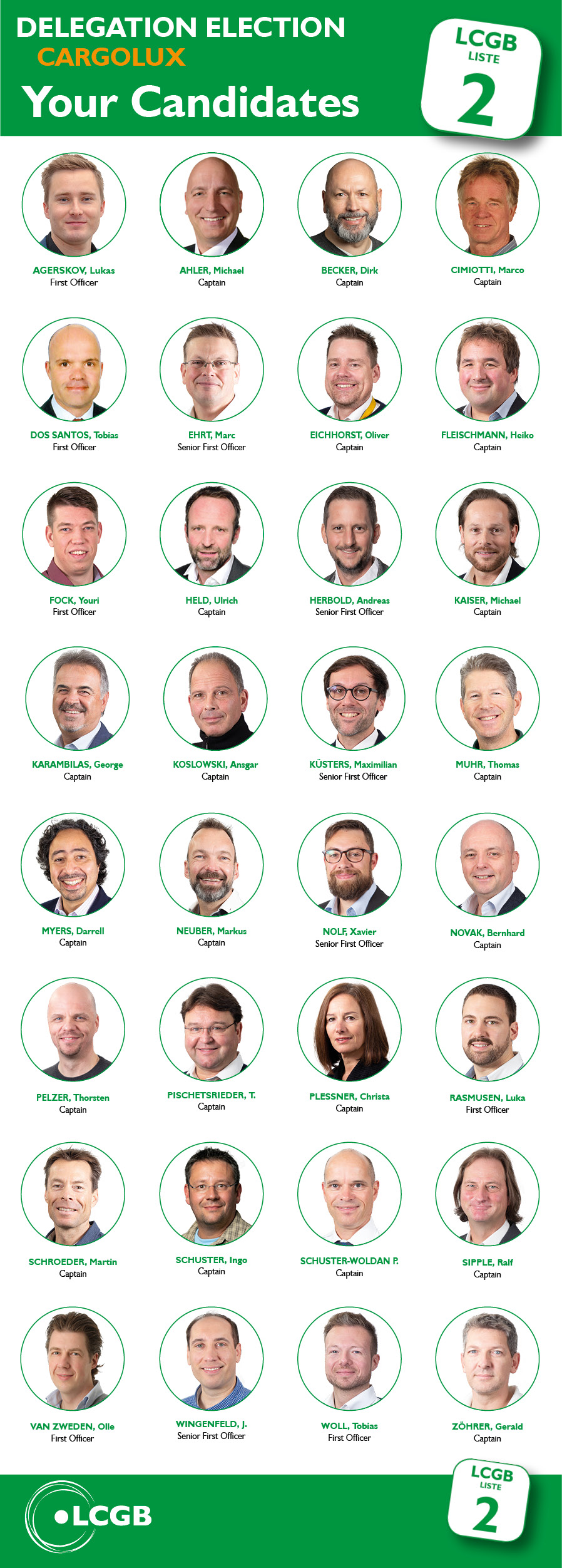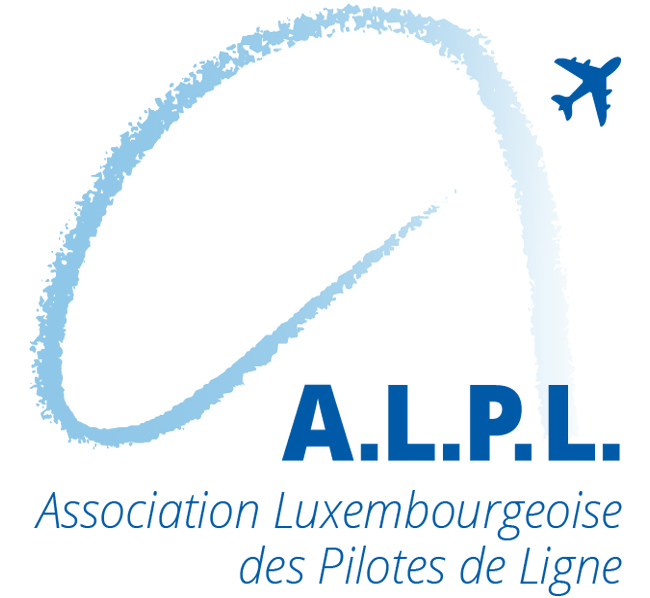Please find below an update regarding:
- 100% compliance with your CWA
- Fatigue Alerts
- Social Security Payments – Part Time
- STBY replaced by FDP
100% compliance with your CWA
After the pretty intense start into the year with the delegation election scheduled on March 12th, we are now back in negotiation mode.
On 14th February 2019 we successfully started the conciliation process at the ONC, which elevated the whole negotiations to the next level. This and the great result of the delegation election, despite not final yet as they could be contested until 1stApril 2019, is a clear signal towards management that changes in the new CWA are required.
Whereas this alone will not result in improvements, we highly recommend continuing to follow the published guidelines on “100% compliance with your CWA”, which you can download here, should you not have done so yet.
Don’t forget what we have been communicating already since May 2018:
- Don’t take things for granted! Just because we are seeing record profits and management struggling to attract and to retain enough pilots, it is not going to be easy to improve the CWA. We will have to fight!
- Expect tough and long negotiations!
- Be mentally prepared and stay united!
- The more effective we are as individuals and as a united group, the better the outcome will be of a sustainable CWA!
- Support your representatives and negotiation team, especially when they ask you to do so!
- Finally, if you are approached by management asking your thoughts on the CWA, just reply “My representatives have my full support to negotiate the listed claims”!
We do want to take this opportunity and thank you for your tremendous support and unity! Please continue with “100% compliance with your CWA” until further notice.
Fatigue Alerts
The number of fatigue alerts that pilots are receiving have declined. In the FSAG it was agreed that delaying a flight solely based on the fatigue alert from the mathematical model, without input from the crew-member, may actually disrupt the pilots planned sleep pattern. It was therefore decided that the flight would only be delayed for additional rest at the express request of the affected crew-member.
A proposed new message from crew control to the affected pilot has been drafted which will ask that pilots to proactively advise if they wish additional rest after receiving a fatigue alert.
We were recently made aware about cases where pilots received a fatigue alert only a few hours before their wake-up call. This will be addressed at the next FSAG meeting. Please note that in these cases, even at this late stage, you can ask for more rest, should you think it is necessary.
We would like to remind every member that each pilot must understand the potential implications of accepting a flight that the mathematical model has flagged as a potential fatigue concern. Especially considering that the data collected in the flight safety department indicates that the mathematical model used by Cargolux underestimates the fatigue score, predominantly at the higher levels of fatigue.
It remains our position that in case you receive a fatigue alert, we strongly suggest applying a very high and professional standard determining your capability to safely operate any subsequent flight. Please remember that you possibly might face a situation where you have to justify your decisions!
As we have indicated in the past, maintaining a sleep log will assist you in making the professional decision. Also, do not forget to file a proactive Fatigue Report when asking for additional rest.
Please click here for additional guidance on how to write a proactive Fatigue Report. If you need further assistance don’t hesitate to get in touch with us via cvboard@alpl.lu
Social Security Payments – Part Time
Once a year around August, every employee receives a printout sent by mail from the “Centre Commun de la Securite Sociale”(CCSS) where the number of months is shown during which social security contributions have been paid by the individual.
Due to the fact, that we as pilots do not have normal working patterns, it happened that the pension contributions have been calculated and submitted wrongly in cases, where pilots where on “one roster off” permanent part time.
In such cases, the document from the administration shows only 11 months of pension contributions instead of the correct 12. Therefore, if you are on 1 or more rosters off permanent part time, we recommend checking the document which you have received from the CCSS and – if it shows or you think it shows the wrong information – get in contact with the payroll department.
Payroll department is already aware of the problem and they will submit the correct number of working hours to the CCSS, after you have sent the printout to them. You then should receive a new document with the correct amount of social security contributions from the CCSS.
STBY Duty replaced by FDP
There have been cases, where pilots on a STBY duty received a flight, which was scheduled to leave outside the time period of their STBY duty on the same day.
It is our position, that this kind of rostering is not endorsed and that, if the STBY duty is replaced by a FDP, the FDP must start within the original STBY duty period. Otherwise it is not possible to plan the rest in advance, which is a requirement according to the OM-A and the awake time would be too long.
EASA also guards against a combination of STBY and a FDP that would exceed 18 hours of wakefulness.
Please contact us, if you are encountering a situation like this.
